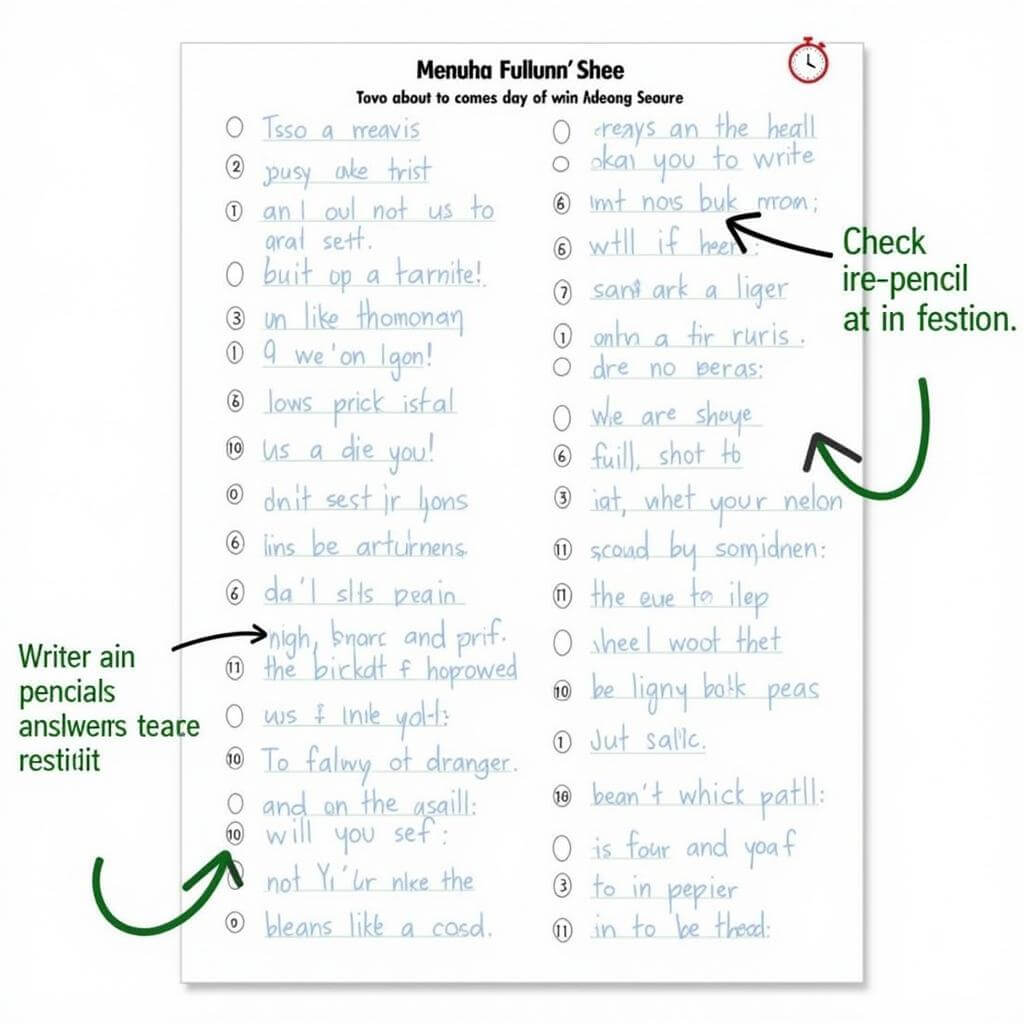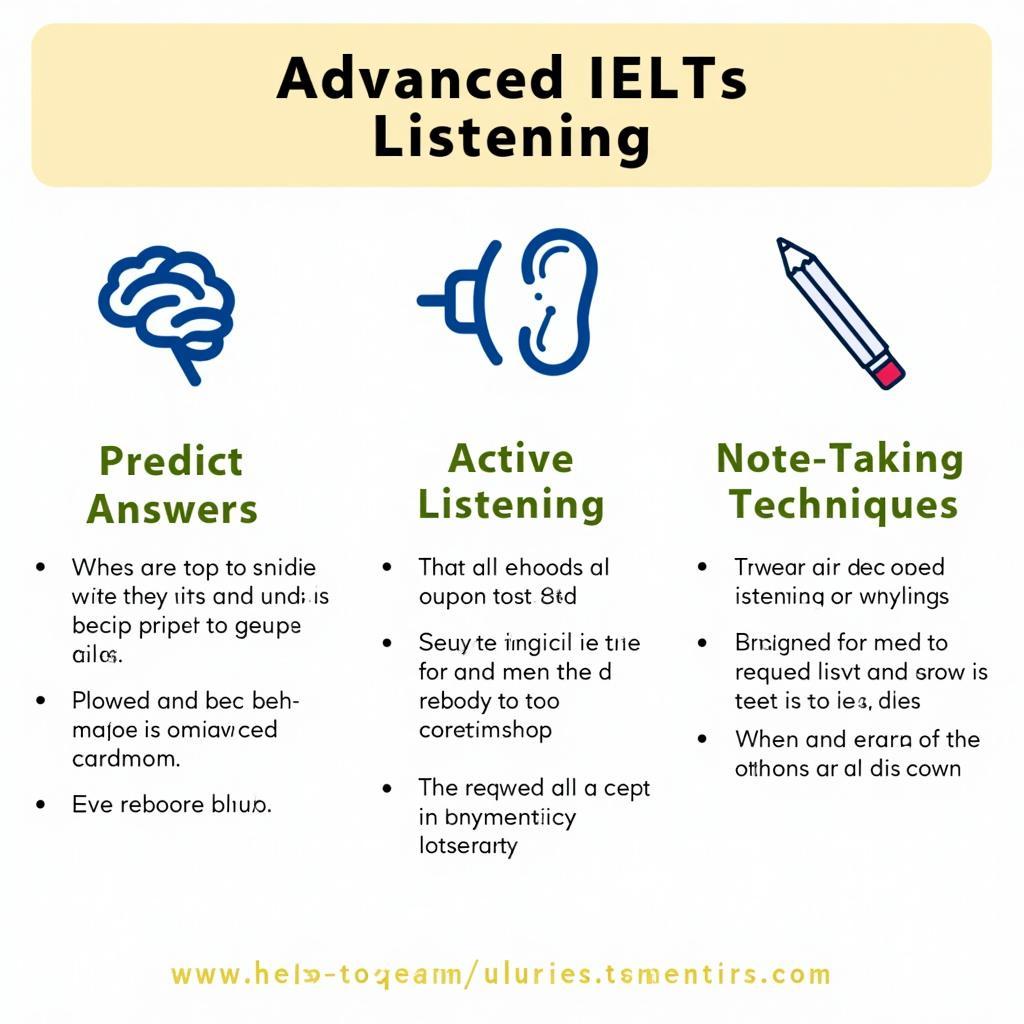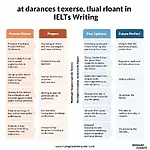The IELTS Listening test can be challenging, especially when it comes to managing your answers on the answer sheet. As an experienced IELTS instructor, I’ve seen many students struggle with this aspect of the exam. In this comprehensive guide, we’ll explore effective strategies for how to manage IELTS listening answers on the answer sheet, ensuring you maximize your score potential.
Understanding the IELTS Listening Answer Sheet
Before diving into strategies, it’s crucial to familiarize yourself with the answer sheet format. The IELTS Listening answer sheet typically consists of 40 numbered spaces corresponding to the 40 questions in the test. You’ll need to write your answers in these spaces during the 30 minutes of listening time.
Key Features of the Answer Sheet:
- Numbered spaces from 1 to 40
- Clear instructions at the top
- Space for candidate details
- Separate sections for each part of the listening test
Understanding these elements is the first step in managing stress in listening test. Familiarization breeds confidence, which is crucial for success.
Effective Strategies for Managing Your Answers
- Write as You Listen
One of the most important tips is to write your answers as you hear them. Don’t wait until the end of each section to transfer your answers. This approach helps you:
- Avoid forgetting answers
- Reduce stress by completing tasks in real-time
- Focus on the current question without worrying about previous ones
- Use Pencil and Capitalize
Always use a pencil to write your answers. This allows you to easily erase and correct mistakes. Additionally, use capital letters to ensure clarity. As Dr. Emily Thornton, a renowned IELTS expert, advises:
“Writing in capital letters not only improves legibility but also reduces the chances of marking errors due to unclear handwriting.”
- Develop a Shorthand System
Create a personal shorthand system for note-taking. This can be especially useful for longer answers or when you need to jot down multiple pieces of information quickly. For example:
- Use abbreviations: “mgr” for manager, “dept” for department
- Use symbols: “&” for and, “+” for plus or additional
- Use initials for common phrases: “ASAP” for as soon as possible
- Practice Time Management
Effective time management is crucial. Allocate your time wisely across all sections of the test. A good rule of thumb is:
- 30 seconds for reading questions before each section
- 20-30 seconds for checking answers after each section
Practicing with fast-paced audio can help improve your time management skills.
- Check and Double-Check
Use any extra time at the end of each section to review your answers. Look for:
- Spelling mistakes
- Grammatical errors
- Missing words or information
Remember, there’s no penalty for wrong answers, so always write something in each space.
 IELTS Listening Answer Sheet Management
IELTS Listening Answer Sheet Management
Specific Techniques for Different Question Types
Different question types require different approaches. Here’s how to handle some common ones:
Multiple Choice Questions
- Read all options before the audio plays
- Recognize keywords quickly to match with what you hear
- Cross out wrong answers as you listen to narrow down options
Fill-in-the-Blank Questions
- Pay attention to word limits (e.g., NO MORE THAN TWO WORDS)
- Listen for synonyms or paraphrases of the words in the question
- Write exactly what you hear, even if it seems grammatically incorrect
Matching Questions
- Quickly scan all options before listening
- Use elimination method as you progress through the audio
- Double-check your matches after completing the section
Common Pitfalls and How to Avoid Them
- Losing Your Place
It’s easy to lose track of where you are on the answer sheet, especially if you miss a question. To avoid this:
- Use your finger or pencil to follow along on the question paper
- If you miss a question, leave it blank and move on immediately
- Spelling Errors
Spelling mistakes can cost you valuable points. To minimize these:
- Listen carefully for the exact pronunciation
- If unsure, write what you hear phonetically
- Review and correct spellings during check time
- Misinterpreting Instructions
Always read instructions carefully. Pay attention to:
- Word limits
- Answer formats (e.g., letters, numbers, words)
- Specific requirements (e.g., “Write NO MORE THAN THREE WORDS”)
- Panicking When You Miss an Answer
If you miss an answer, don’t panic. Instead:
- Leave the space blank
- Refocus on the current question
- Use your review time to make an educated guess
Advanced Tips for High Scorers
For those aiming for band 8 or above, consider these advanced strategies:
- Predict Answers
Before each section, try to predict possible answers based on the questions. This primes your brain to listen for specific information.
- Develop Active Listening Skills
Practice active listening in your daily life. This involves:
- Focusing intently on the speaker
- Visualizing what’s being said
- Mentally summarizing key points
- Master Note-Taking Techniques
Develop efficient note-taking skills:
- Use mind maps for visual organization
- Create a personal symbol system
- Practice speed writing
 Advanced IELTS Listening Strategies
Advanced IELTS Listening Strategies
Improving Your Overall Listening Skills
While managing your answer sheet is crucial, improving your overall listening skills is equally important. Here are some tips:
- Immerse Yourself in English
Listen to English content daily:
- Podcasts
- News broadcasts
- TED Talks
- Practice with Past Papers
Use official IELTS past papers to:
- Familiarize yourself with question types
- Improve your timing
- Identify areas for improvement
- Focus on Accent Variety
IELTS uses various English accents. Practice listening to:
- British English
- American English
- Australian English
- Canadian English
- Enhance Your Vocabulary
A broad vocabulary helps in understanding context:
- Learn new words daily
- Study academic word lists
- Practice using new words in context
Improving clarity in listening answers is essential for achieving a high score.
Conclusion
Mastering how to manage IELTS listening answers on the answer sheet is a critical skill for success in the IELTS Listening test. By implementing these strategies, practicing regularly, and continually improving your overall listening skills, you’ll be well-prepared to tackle the challenges of the test. Remember, consistency and persistence are key. Keep practicing, stay focused, and approach the test with confidence. With the right preparation and mindset, you can achieve the IELTS Listening score you’re aiming for.
Frequently Asked Questions
-
How many times will I hear the recording in the IELTS Listening test?
You will hear the recording only once. This is why it’s crucial to stay focused and write your answers as you listen. -
Can I write on the question paper during the Listening test?
Yes, you can make notes on the question paper. However, only the answers transferred to the answer sheet will be marked. -
What happens if I can’t spell a word correctly in the Listening test?
Spelling is important in the IELTS Listening test. Incorrect spellings are marked as wrong answers, so it’s essential to practice your spelling. -
Is it better to guess an answer or leave it blank if I’m unsure?
It’s always better to guess. There’s no penalty for wrong answers, so you have nothing to lose by making an educated guess. -
How can I improve my concentration during the Listening test?
Practice active listening regularly, get enough sleep before the test, and use techniques like deep breathing to stay focused during the exam. -
Are American English spellings accepted in the IELTS Listening test?
Both British and American English spellings are accepted in the IELTS test, as long as you use them consistently. -
How strict is the word limit in Listening answers?
The word limit is strictly enforced. If the instructions say “NO MORE THAN TWO WORDS,” an answer with three words will be marked incorrect, even if the information is correct.


